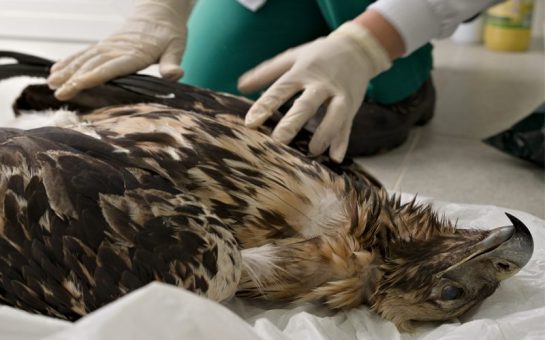Londoners are being urged to look out for sightings and signs of wild mammals in their gardens and local green spaces and record them online as part of a year-long survey about people living with animals.
Wildlife charity People’s Trust for Endangered Species (PTES) launched the survey this week and for the first time in the survey’s 18-year history, it will run throughout 2021 following a successful run in the 2020 lockdown.
With people being at home and having more time to watch their gardens, PTES recorded a massive increase in mammal sightings ranging from hazel dormice on bird feeders to hedgehogs snuffling in gardens in the evenings.
PTES said that they were keen to build on the positive relationship created between people and nature during 2020’s lockdowns, which not only benefitted the UK’s wildlife but also had a positive impact on the mental health and wellbeing of those taking part.
David Wembridge, mammal surveys coordinator at PTES, said: “Despite the challenges of 2020, one positive was the number of people seeing wild mammals more frequently, some for the first time.
“Connections with nature are so important. Not only do we gain a unique insight into the lives of our wild neighbours, which is hugely beneficial for conservation, but wildlife watching and being close to nature is known to have a positive impact on our mental health too, which is needed now perhaps more than ever.”
Over 2,000 people took part last year and 2,400 surveys were submitted – more than two times more than in any other year.
The top five species most commonly recorded were: grey squirrels, hedgehogs, foxes, mice and bats.
Despite being top five, hedgehog sightings slightly dropped, from 41% compared with 44% in 2019 but strikingly rabbits saw a larger decline with only 8.5% of sites surveyed seeing a rabbit, compared with 13% in 2019 and about 25% a decade ago.
Wembridge added: “We launched Living with Mammals 18 years ago. The data gathered enables us to better understand how mammal populations are faring across the UK and where conservation action is needed.
“With access to this unique long-term database of population trends, we can spot when a species is in trouble and act.”
To take part in Living with Mammals 2021 and find out how to identify different mammals, visit their website and share your sightings online using #LivingWithMammals.
You can also read about how over 50,000 Londoners took part in the RSPB’s Big Garden Birdwatch here.
Feature image: Craige Mcgonigle




